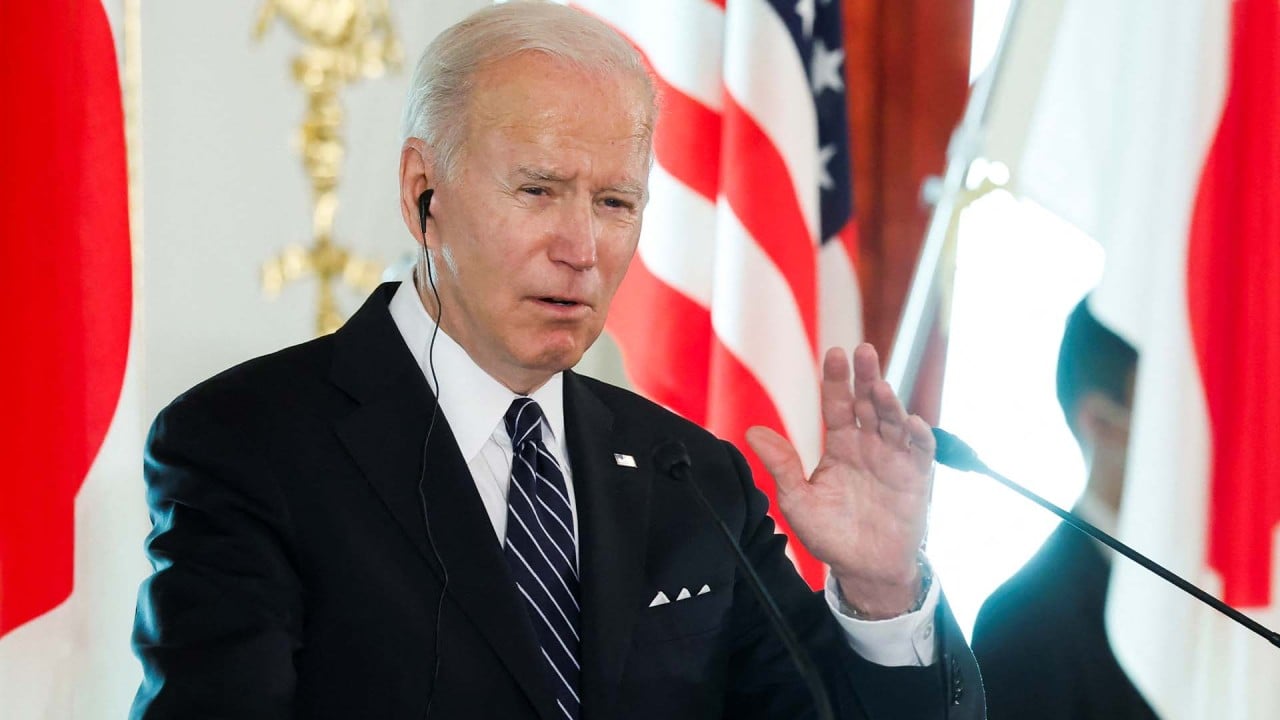
US-Taiwan trade initiative signals a shift in approach, analysts say
- Economic cooperation between Washington and Taipei seen as a more institutionalised way to strengthen ties
- It could also bring the island closer to the US Indo-Pacific strategy by reducing its dependence on the mainland economy
The initiative launched on Tuesday aims to promote a tighter trade relationship “based on shared values” through agreements in areas including regulatory practices, anti-corruption standards, digital trade and the environmental impact of trade.
“The two sides seek to develop provisions to create a level playing field for workers and businesses when competing against these entities in the international marketplace,” the US Trade Representative said in a notice.
Beijing on Thursday said it had long opposed moves by any country to sign official trade deals that could imply Taiwan was a sovereign nation, and urged the US to follow its one-China principle.
“The US insistence on playing the Taiwan card will only endanger China-US relations,” foreign ministry spokesman Zhao Lijian said.
“Declaring that Taiwan was rejected for the framework was done in name only,” said Shi Yinhong, an international relations professor at Renmin University of China.
“Probably because of this, the US and Taiwan immediately went into talks for a formal agreement for economic and trade cooperation.”
He said American and Taiwanese trade representatives had met multiple times since Biden took office, forming a framework for trade and technical cooperation.
While the announcement of the US-Taiwan initiative had few details, it was both symbolic and substantial, Shi said.
He added that economic cooperation between the US and Taiwan could not be described as ambiguous and was getting more institutionalised.
“The initiative reassures the Taiwanese government and public, and allies, and it also tells China that the US will not refrain from fighting back.”
US deputy trade representative Sarah Bianchi and Taiwanese minister without portfolio John Deng Chen-chung met and launched the initiative at a virtual event organised by the Taipei Economic and Cultural Representative Office in the United States and the American Institute in Taiwan, the de facto US embassy in Taipei.
The first meeting of the initiative is to be held later in June in Washington, the US Trade Representative office said in a statement, but it did not say who would attend.
The US-Taiwan initiative makes up for the island’s exclusion from the IPEF, according to Roy Lee Chun, senior deputy executive director at the Taipei-based Chung-Hua Institution for Economic Research’s Taiwan WTO & RTA Centre.
It would also help the island to understand US strategy on the IPEF and to eventually join the framework, he said. “So Taiwan should remain patient by keeping up its communication with the US in order to join the IPEF in the future.”
The US Trade Representative’s Office has said the initiative also aims to level the playing field for businesses and workers when competing against state-owned enterprises that create “significant distortions” – a veiled reference to the Chinese economy that is reliant on SOEs that often operate in foreign markets.
Wu Xinbo, a professor and director of the Centre for American Studies at Fudan University in Shanghai, said the US intended to reaffirm its support for Taiwan through the initiative, which still allowed the island to be part of the US Indo-Pacific strategy.
“What the US cares most about is to pull Taiwan away from mainland China and reduce its dependence on the mainland economy, including Taiwan’s support for the mainland in the area of semiconductors,” Wu said.
But Wu did not expect the US-Taiwan initiative to damage mainland China’s trade ties with others in the region.
“The US could give few economic and trade benefits to the region, so what it is eyeing are its geopolitical needs,” he said. “To most countries in the region, China is their top trade partner. The US could not unseat it.”
Additional reporting by Lawrence Chung



